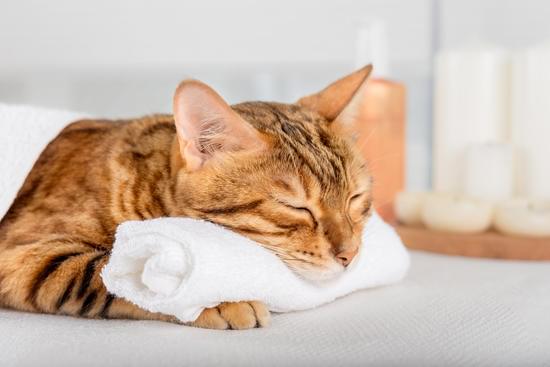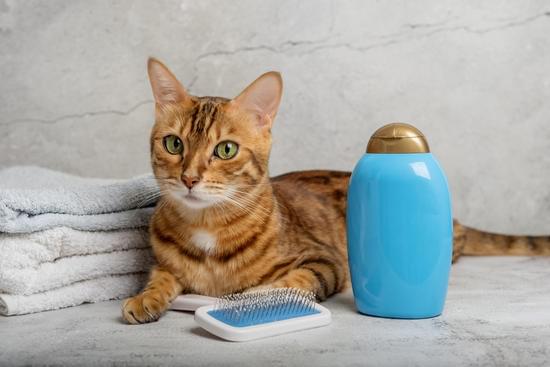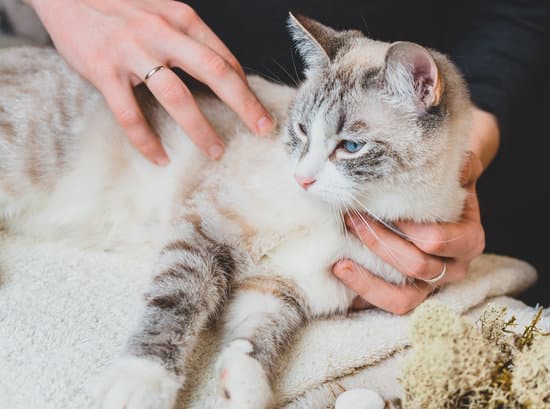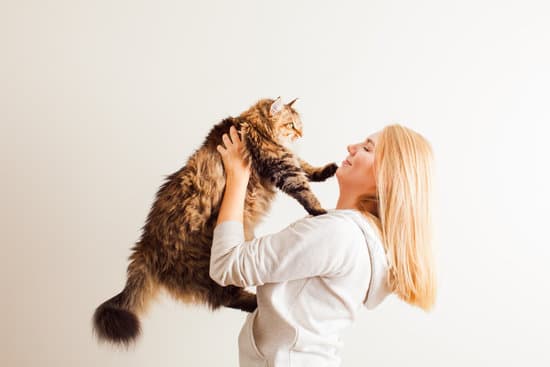Expert Advice for Feline Wellness
Cat
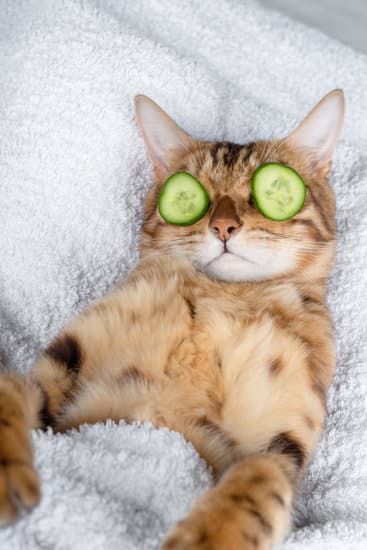
Cats are beloved pets in many households, and keeping them healthy is a top priority for their owners. However, it can be challenging to know how to take care of a feline friend properly. From diet to exercise to regular check-ups, there are many things that kitten owners can do to ensure that their pets remain healthy and happy. In this article, we will explore some tips for keeping your kitten healthy and thriving.
One of the most important aspects of cat care is providing a balanced and nutritious diet. kittens are obligate carnivores, meaning that they require a diet that is high in protein and low in carbohydrates. It is essential to choose a high-quality cat food that meets their nutritional needs and provides them with the energy they need to stay active and healthy. Additionally, it is essential to monitor their food intake and avoid overfeeding, which can lead to obesity and other health problems.
Regular exercise is also crucial for maintaining a cat’s health. While kittens are known for their love of lounging, they still require physical activity to keep their muscles strong and their minds engaged. Playtime with toys or interactive games can help keep kittens active and entertained, and regular exercise can also help prevent obesity and other health issues. By following these tips and providing your kitten with the care they need, you can help ensure that they live a long and healthy life.
Nutrition and Diet
Choosing the Right Food
Choosing the right food for your cat is crucial for their overall health and well-being. It is important to opt for high-quality kitten food that is specifically formulated to meet your kitten’s nutritional needs. When choosing kitten food, it is important to read the label carefully and look for ingredients such as high-quality protein sources, vitamins, and minerals. Avoid kitten food that contains fillers, artificial colors, and flavors.
Understanding Nutritional Needs
Cats have specific nutritional needs that must be met in order to maintain good health. For instance, kittens require high amounts of protein in their diet to maintain healthy muscles and tissues. They also require essential fatty acids, such as omega-3 and omega-6, for healthy skin and coat. Additionally, kittens require certain vitamins and minerals, such as vitamin A, vitamin D, and calcium, to maintain strong bones and teeth.
The Importance of Fresh Water
In addition to providing your cat with high-quality food, it is important to ensure that they have access to fresh water at all times. kittens require fresh water to maintain proper hydration, which is essential for healthy kidney function. Make sure to change your kitten’s water frequently and clean their water bowl regularly to prevent the growth of harmful bacteria.
Overall, providing your kitten with a well-balanced and nutritious diet, along with fresh water, is key to keeping them healthy and happy.
Regular Veterinary Care
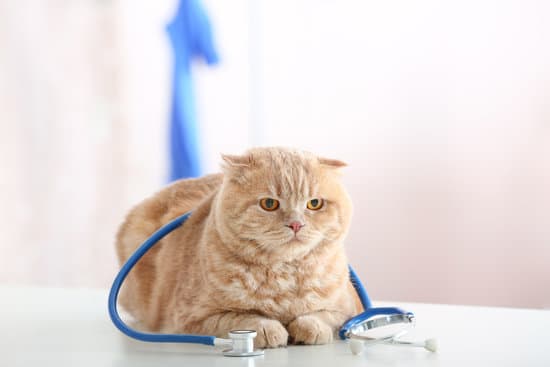
Routine Check-Ups
Regular visits to the veterinarian are essential for ensuring the health and well-being of your cat. During these check-ups, the vet will examine your kitten and assess their overall health. They will also be able to identify any potential health issues before they become serious problems.
It is recommended that cats receive a check-up at least once a year, although older kittens or those with pre-existing conditions may require more frequent visits. During these visits, the vet will check your kitten’s weight, temperature, heart rate, and breathing. They will also examine your cat’s eyes, ears, mouth, and skin for any signs of illness or disease.
Vaccinations and Preventatives
Vaccinations are an important part of keeping your cat healthy. They protect your kitten from a variety of diseases, including rabies, feline leukemia, and distemper. Your vet will recommend a vaccination schedule based on your kitten’s age, health, and lifestyle.
In addition to vaccinations, your vet may also recommend preventatives such as flea and tick medication, heartworm medication, and deworming medication. These medications help protect your cat from parasites and other pests that can cause illness or disease.
Dental Hygiene
Dental hygiene is an often-overlooked aspect of cat care, but it is essential for maintaining your kitten’s overall health. Poor dental hygiene can lead to a variety of health problems, including gum disease, tooth decay, and even organ damage.
During your cat’s check-up, the vet will examine their teeth and gums for any signs of dental problems. They may also recommend a dental cleaning or other dental treatments if necessary. To help maintain your kitten’s dental health at home, you can brush their teeth regularly and provide them with dental treats and toys.
Overall, regular veterinary care is essential for keeping your kitten healthy. By scheduling routine check-ups, staying up-to-date on vaccinations and preventatives, and maintaining good dental hygiene, you can help ensure that your cat lives a long and healthy life.
Exercise and Play
Interactive Toys
Interactive toys are a great way to keep your cat entertained and active. These toys allow your kitten to engage in natural hunting behaviors such as chasing and pouncing. Some popular interactive toys include laser pointers, feather wands, and puzzle feeders. It is important to supervise your cat while playing with these toys to ensure they do not accidentally ingest any parts.
Creating an Engaging Environment
In addition to interactive toys, creating an engaging environment can also encourage exercise and play. Providing your cat with scratching posts, climbing trees, and perches can give them opportunities to climb and stretch. Adding new toys and rotating them regularly can also keep your kitten interested and engaged.
The Role of Exercise in Health
Regular exercise is important for a cat’s overall health and well-being. Exercise can help maintain a healthy weight, prevent obesity-related health issues, and improve cardiovascular health. It can also reduce stress and anxiety in kittens. It is recommended to provide at least 20-30 minutes of playtime per day for your kitten to help them stay active and healthy.
By incorporating interactive toys, creating an engaging environment, and providing regular exercise, you can help keep your cat healthy and happy.
Mental Health

Stress Reduction
Cats can experience stress just like humans do, and it can have a negative impact on their mental health. Stress can be caused by a variety of factors, such as changes in their environment, lack of stimulation, and even other pets in the household. To help reduce stress in your cat, consider the following tips:
- Provide a consistent routine for feeding and playtime.
- Create a safe and peaceful environment by providing hiding places and vertical spaces.
- Use pheromone sprays or diffusers to help calm your kitten.
- Play calming music or white noise to help soothe your kitten.
Environmental Enrichment
Cats are natural hunters and explorers, and providing them with a stimulating environment can help improve their mental health. Environmental enrichment can include a variety of activities and items, such as:
- Puzzle feeders and interactive toys to stimulate their hunting instincts.
- Scratching posts and climbing trees to provide vertical spaces.
- Access to outdoor spaces, such as a secure balcony or catio.
- Providing a variety of textures and smells, such as different types of bedding and toys.
By providing a stress-free and stimulating environment for your kitten, you can help improve their mental health and overall well-being.
Grooming and Hygiene
Coat Care
Keeping a cat’s coat clean and healthy is an important part of maintaining their overall health. Regular brushing helps remove loose hair, dirt, and debris, and can prevent matting. kittens with long hair may require more frequent brushing than those with short hair. Additionally, regular baths can help keep a kitten’s coat clean and reduce the risk of skin infections.
Nail Trimming
Trimming a cat’s nails regularly can help prevent them from becoming overgrown and causing discomfort or even injury. It can also help prevent damage to furniture and other household items. Many kittens do not enjoy having their nails trimmed, so it is important to introduce the process gradually and use positive reinforcement to help them feel comfortable.
Ear and Eye Cleaning
Cleaning a cat’s ears and eyes regularly can help prevent infections and other health problems. Use a damp cloth or cotton ball to gently clean around the ears and eyes, taking care not to insert anything into the ear canal. If you notice any discharge or other signs of infection, contact your veterinarian for further guidance.
Overall, regular grooming and hygiene practices are essential for keeping your kitten healthy and happy. By incorporating these tips into your routine, you can help ensure that your feline companion stays in top condition for years to come.
Weight Management
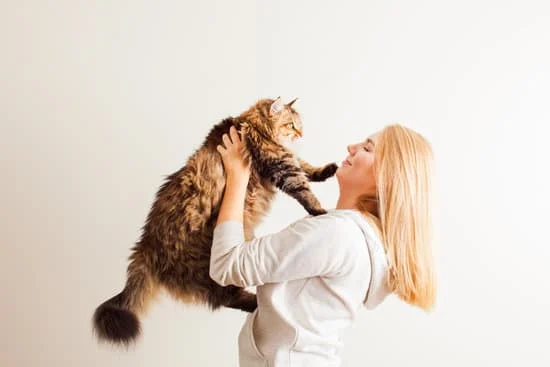
Monitoring Body Condition
Regularly monitoring your cat’s body condition can help you determine if they are at a healthy weight. This can be done by feeling their ribs and spine. You should be able to feel their ribs without pressing too hard, but they should not be visible. Their spine should also be easily felt, but not protruding.
Another way to monitor your kitten’s weight is by using a body condition score chart. This chart can help you determine if your kitten is underweight, overweight, or at an ideal weight based on their body shape and size.
Obesity Prevention
Obesity can lead to many health problems in cats, including diabetes, joint pain, and heart disease. To prevent obesity, it is important to provide your kitten with a balanced diet and regular exercise.
Feeding your kitten high-quality, nutrient-dense food in appropriate portions can help prevent overeating and weight gain. Avoid feeding your kitten table scraps or human food, as these can be high in fat and calories.
Regular exercise is also important for weight management. Encourage your kitten to play and be active by providing toys and climbing structures. You can also try interactive toys that require your kitten to move around and play.
By monitoring your kitten’s body condition and taking steps to prevent obesity, you can help keep your feline friend healthy and happy.
Preventive Measures
Parasite Control
Preventing parasites is an essential part of keeping your cat healthy. Parasites can cause a range of health problems and can be difficult to eradicate once they have established themselves. There are several preventive measures that you can take to reduce the risk of your kitten getting parasites.
Fleas
Fleas are a common parasite that can cause itching, skin irritation, and even anemia in cats. To prevent fleas, you should use a flea preventative medication such as a topical solution or a collar. You should also regularly vacuum your home and wash your kitten’s bedding to reduce the risk of infestation.
Ticks
Ticks are another common parasite that can transmit diseases such as Lyme disease and Rocky Mountain spotted fever. To prevent ticks, you should regularly check your cat for ticks and remove any that you find. You should also use a tick preventative medication if you live in an area where ticks are common.
Worms
Worms are internal parasites that can cause a range of health problems in cats. To prevent worms, you should regularly deworm your kitten and keep their living area clean and hygienic.
Spaying/Neutering
Spaying or neutering your cat is an important preventive measure that can help reduce the risk of certain health problems and behavioral issues. Spaying or neutering your kitten can help prevent certain types of cancer and can also reduce the risk of your kitten getting into fights or wandering away from home.
In addition to the health benefits, spaying or neutering your kitten can also help reduce the number of unwanted litters of kittens and can help reduce the number of kittens in shelters. If you are considering spaying or neutering your kitten, talk to your veterinarian about the best time to do so and any potential risks or complications.
Understanding Cat Behavior
Communication Cues
Cats are known for their unique way of communicating with their owners. Understanding these communication cues is essential for maintaining a healthy relationship with your feline friend. Here are some common communication cues that kittens use:
- Purring: kittens purr when they are happy and content. However, they may also purr when they are in pain or stressed.
- Meowing: kittens meow to get attention from their owners. They may also meow when they are hungry or want to go outside.
- Hissing: Hissing is a sign of fear or aggression. It is important to give your kitten space when they hiss to avoid getting scratched or bitten.
- Body language: kittens use their body language to communicate their feelings. For example, a kitten with a puffed-up tail is likely feeling scared or threatened.
Behavioral Problems
Cats can develop behavioral problems if their needs are not being met. Here are some common behavioral problems that kitten owners may encounter:
- Scratching furniture: kittens scratch to mark their territory and keep their claws sharp. Providing a scratching post can help redirect their scratching behavior.
- Litter box problems: kittens may avoid using the litter box if it is not clean or if they do not like the type of litter. It is important to clean the litter box regularly and experiment with different types of litter.
- Aggression: kittens may become aggressive if they feel threatened or if their boundaries are being crossed. It is important to give your kitten space and avoid handling them roughly.
Understanding your kitten’s behavior can help you provide them with the care and attention they need. By paying attention to their communication cues and addressing any behavioral problems, you can ensure that your kitten stays happy and healthy.
Emergency Care
Recognizing Emergencies
It’s important for cat owners to be able to recognize when their kitten is experiencing an emergency. Some common signs of an emergency include:
- Difficulty breathing
- Unconsciousness or collapse
- Seizures
- Profuse bleeding
- Ingestion of toxic substances
- Trauma, such as being hit by a car
If your kitten is experiencing any of these symptoms, it’s important to seek veterinary care immediately. Delaying treatment can lead to serious consequences, including death.
First Aid Basics
While waiting for veterinary care, there are some basic first aid steps that cat owners can take to help their kitten:
- If your kitten is bleeding, apply pressure to the wound with a clean cloth or gauze.
- If your kitten is choking, try to remove the object from their throat. If you’re unable to do so, seek veterinary care immediately.
- If your kitten is unconscious or not breathing, perform CPR if you’re trained to do so.
It’s important to note that first aid is not a substitute for veterinary care. Even if your kitten seems to be recovering, it’s important to seek veterinary care as soon as possible to ensure that there are no underlying issues that need to be addressed.
By being able to recognize emergencies and knowing basic first aid, kitten owners can help ensure that their kittens receive the care they need in a timely manner.
Aging and Senior Care
Special Considerations for Seniors
As cats age, they require special attention and care to ensure they remain healthy and comfortable. Here are some tips to keep in mind:
- Regular vet check-ups: Older kittens should see a veterinarian at least twice a year for a check-up. This helps identify any potential health issues early on, allowing for prompt treatment.
- Diet: Senior cats require a diet that is lower in calories and higher in protein to maintain muscle mass. It is important to consult with a veterinarian to determine the best diet for your kitten’s individual needs.
- Exercise: Encouraging exercise is important for maintaining muscle mass and preventing obesity. However, it is important to adjust the intensity and duration of exercise to your kitten’s abilities.
- Environmental modifications: Older kittens may have difficulty jumping or climbing, so it is important to provide them with easy access to their favorite spots. This can be done by adding ramps or steps to furniture or providing lower perches.
Managing Chronic Conditions
As cats age, they may develop chronic conditions such as arthritis, kidney disease, or diabetes. Here are some tips to help manage these conditions:
- Medication: Cats may require medication to manage chronic conditions. It is important to follow the veterinarian’s instructions for administering medication and to monitor for any side effects.
- Diet: Cats with chronic conditions may require a special diet to manage their condition. It is important to consult with a veterinarian to determine the best diet for your kitten’s individual needs.
- Environmental modifications: kittens with chronic conditions may require modifications to their environment to help them move around more easily. This can include providing litter boxes with lower sides or adding soft bedding to help with joint pain.
By following these tips, kitten owners can help ensure their senior kittens remain healthy and comfortable in their golden years.

